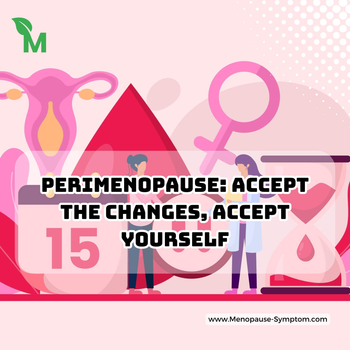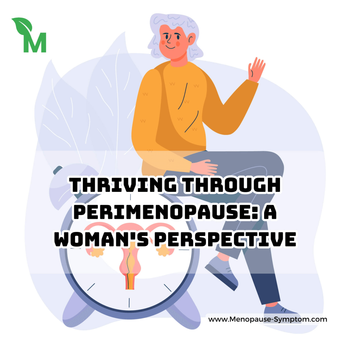Perimenopause: A Guide To Better Sleep
On
07/10/2024Reading time:
8 min
Summary:
Perimenopause is an important transitional stage in a woman's life that usually begins after the age of 40. This is the stage when a woman's body experiences many changes related to psychology and physiology, as well as health.
After this stage, women will come to menopause stage - the cessation of menstruation, meaning that ovulation will not occur, menstruation will disappear and there will be no more fertility. During this stage, women often have signs such as irregular menstruation, hot flashes, sweating, insomnia, anger for no reason, headaches, dizziness, thin and dry vagina, urinary tract infections, and declining beauty. Because a woman's body begins to experience many hormonal changes, causing unpleasant symptoms, especially ovulation, it is easy to cause difficulty sleeping and insomnia. Therefore, learning about methods to help improve sleep during perimenopause becomes extremely necessary.
One of the main reasons why many women have difficulty sleeping during perimenopause is the change in the hormone Estrogen. Estrogen is a hormone responsible for many functions in the body, it gradually decreases during this period, leading to imbalance and creating symptoms such as hot flashes, night sweats and anxiety. These symptoms not only affect health and mood but also increase insomnia. To improve sleep, understanding perimenopause and solutions will be the key.
Build Good Sleeping Habits
Good sleeping habits are a decisive factor in sleep quality. For women in perimenopause, establishing a habit of sleeping in the right position, for enough time and repeating regularly will help improve insomnia. Try to go to bed and wake up at the same time every day, even on weekends. This helps the body adjust its biological clock, from which you will easily fall asleep and sleep more deeply.
Making a Comfortable Environment Around Your Sleep Area
The ideal sleeping environment is also an important part of improving sleep. Making sure your bedroom is dark, quiet, and at a comfortable temperature can help you fall asleep easily. For women who are going through perimenopause and experiencing hot flashes, using a fan or air conditioning can help lower your body temperature.
A Reasonable Diet
Diet becomes an important part of supporting sleep, especially during perimenopause. Foods rich in calcium, vitamin D, and magnesium not only help strengthen bones but also support sleep. Nuts, milk, and green vegetables are good choices for daily meals. Avoid eating too much in the evening, letting your body relax will help you sleep more easily.
In addition, you should also avoid foods containing caffeine or sugar before going to bed. Stimulation from caffeine can increase feelings of anxiety and make it difficult to sleep. Instead of drinking coffee, try replacing it with herbal teas such as chamomile or jujube tea – a type of tea known for its relaxing effects and helping you sleep better.
Exercise Regularly
Exercising regularly is not only good for your health, but it is also an effective way to improve sleep for perimenopausal women. One study found that gentle exercise such as yoga, walking, or swimming can help improve sleep quality. However, it is important to avoid exercising too close to bedtime as this can increase energy and make it difficult to fall asleep.
Practice Relaxation Techniques
Relaxation techniques before bed can help reduce stress and anxiety, which can help you sleep better. Try breathing exercises, meditation, or gentle yoga, or simply read a few pages of a book before bed. These activities help relax the mind and aid the transition from being awake to sleeping.
Use Sleep Aids
Many products are now created to help women sleep better during perimenopause. Supplements containing melatonin or herbs such as valerian can help improve sleep. However, before using any product, you should consult your doctor for advice on use, ensuring health safety.
Take notes and monitor your body's symptoms
Note down your body's symptoms and feelings to help you identify what factors affect your sleep. Finding the problem is 50% of the result. You can create a sleep diary to track your sleeping habits as well as perimenopause symptoms. This not only helps you better understand your health condition to choose the right method, but also helps your doctor provide treatment when necessary.
Preventing Sleep Disruptions
If you frequently wake up in the middle of the night or have trouble falling back to sleep, try some tips like not using your phone or computer before bed, and avoiding eating or drinking close to bedtime. Turn off or put these devices on airplane mode and keep them away from your sleeping area. You can make a habit of turning off electronic devices at least 30 minutes before you go to bed to give your body time to relax and unwind.
Get Expert Advice
Finally, if insomnia during perimenopause persists and seriously affects your quality of life, you should see a health professional or doctor. They can help you assess your overall health and suggest appropriate treatment or advice.
Conclusion
Perimenopause is a challenging stage in a woman's life, however, through reasonable measures, you can absolutely improve your sleep. By adopting good habits, adjusting your diet, exercising regularly, and practicing relaxation techniques, women can overcome the difficulties of perimenopause and regain good sleep. Take care of your health and seek support when needed to maintain a healthy and happy life during this period.

Perimenopause: Accept The Changes, Accept Yourself
Invalid Date
Perimenopause is a natural stage in every woman's life, taking place through physiological and psychological changes. It is a special journey, where each woman is encouraged to accept the changes to move forward to a new and meaningful life.

Thriving Through Perimenopause: A Woman's Perspective
Invalid Date
Perimenopause, a challenging yet growth-enhancing stage, is becoming a more discussed topic in the women's community. Many women feel a clear change in their body and mind during this stage, and in fact, perimenopause offers a host of opportunities for self-discovery and self-actualization.

Perimenopause: Home Remedies For Hot Flashes
09.02.2024
You must be wondering about perimenopause and are interested in the changes it brings to a woman's body. Perimenopause usually begins when a woman is in her 40s and can last for 2-5 years depending on the individual, before entering the actual menopause.
